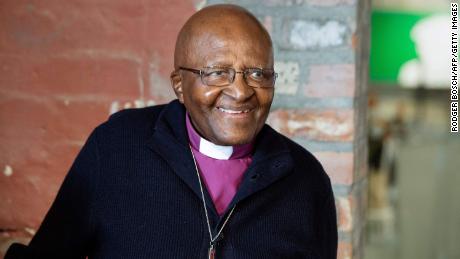 Desmond Tutu, who passed away last week, was one of my heroes. In an interview, he was asked how he could remain an optimist even when bad things were happening all around the world. He negated that notion that he was an optimist, but stated that he was rather a "prisoner of hope". He felt like optimism was too wishy-washy, while being a prisoner of hope meant we continue to do the right thing (with compassion, integrity, and goodness) because we innately KNOW that things will get better. I've always been an almost apologetic Pollyanna, thinking that very way. Now, after hearing Desmond Tutu's interview and hearing our priest in church this morning talk about this notion of being a prisoner of hope, I think I need to quit being apologetic about my belief that things will, indeed, get better. And, in truth, it really isn't just a belief. I am charged with and commanded (and even imprisoned, to use Tutu's words) to know that hope is eternal. Amidst COVID, death of family members, friends being diagnosed with cancer, bi-partisan craziness, political views that not only split sides of the House but also split up families, and so many more tragic events and happenings, I still know that things will get better. When the stock market takes a nose dive, I know it will turn at some point---it has to. So, how has being a "prisoner of hope" impacted me? 1. I freak out, talk it out, then give it up: I have been known, a time or two, to want things to be perfect (I want to get to where I need to go on time, I want to be the perfect presenter, I want to control when something is going to be delivered, and the list goes on ad infinitum). I know when this happens that it is typically a direct result of being out of sync with my faith and serenity. When I notice it happening (for example: trying to tell the gate agent that I have to get home, as if that is going to make an airplane magically appear or magically get repaired or cleaned), I know what to do. I simply need to take a deep breath, say the Serenity Prayer, then hightail it to the nearest airline lounge, where I can get re-booked, etc. In a perfect world, I'd love to skip the "freak out" part, but I am genetically wired, I'm afraid, to go that route first. 2.Be the calm for someone who cannot: One of the biggest ah-ha moments I've had in my life is that, when I am freaking out somewhat about something I can't control, the best thing I can do to overcome this warped feeling inside me is by being the calm for someone who is currently unable. For example, when I am teaching a group of teachers or administrators, things don't always go as advertised. Sometimes, the technology isn't working the way it should; sometimes, the materials are not ready or are put together correctly; sometimes, the room we thought we would be using is unavailable, and we have to punt with a space that is less than ideal for engagement. That is the real world, and if I am going to serve as a model of what good teaching looks like, I surely had better be prepared to go with a plan B (or C or D). Being the storm does me no good, nor does it do the learners in front of me any good. I have found that, even on an airplane, when there is turbulence, and I am seated next to someone who is clearly not comfortable with air travel, I can be the voice of reason ("there is always turbulence when we begin to land in Tucson because of the mountains. It is nothing to worry about"). I pray I can remain a prisoner of hope for the entirety of my life. It sure beats the alternative. I hope you can do the same! Happy Communicating! Shelly
0 Comments
Leave a Reply. |
Shelly ArnesonCategories |


 RSS Feed
RSS Feed